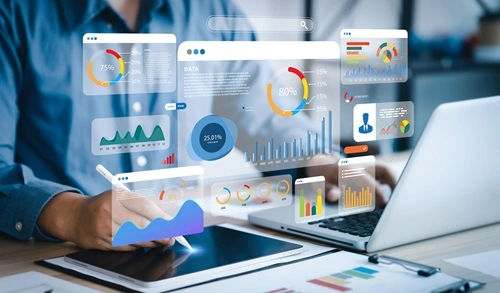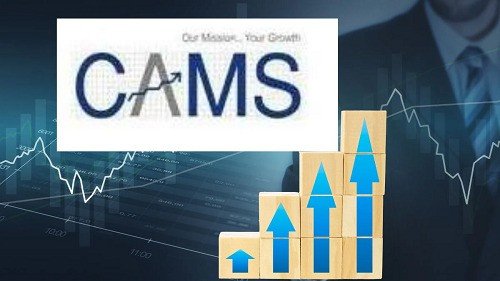Marketing analytics has become a cornerstone of modern business strategies, allowing companies to leverage data-driven insights for more effective decision-making. In India, the growing digital ecosystem and widespread internet penetration have made marketing analytics an indispensable tool for businesses. However, like any tool, marketing analytics comes with its own set of advantages and disadvantages. This article provides a detailed analysis of how marketing analytics impacts Indian businesses, exploring its benefits, challenges, and implications for the future.
What is Marketing Analytics?

Marketing analytics refers to the process of measuring, managing, and analyzing marketing performance to maximize its effectiveness and optimize return on investment (ROI). By leveraging data from various channels—social media, email campaigns, website traffic, and customer interactions—marketing analytics helps organizations understand customer behavior, refine strategies, and drive growth.
Advantages of Marketing Analytics
1. Improved Decision-Making
Marketing analytics enables businesses to base their decisions on data rather than intuition. For example, Indian e-commerce platforms like Flipkart use analytics to understand shopping trends, which helps in stocking inventory and offering personalized recommendations.
2. Enhanced Customer Segmentation
Analytics allows businesses to segment customers based on demographics, purchasing behavior, and preferences. This targeted approach ensures that marketing efforts resonate with specific audience segments, improving engagement and conversions. For instance, Paytm leverages analytics to tailor its promotional offers to individual user preferences.
3. Optimized Marketing Budgets
With insights into the performance of different campaigns, businesses can allocate their budgets more effectively. By identifying high-performing channels, marketers can invest in strategies that generate the best ROI, reducing wastage.
4. Real-Time Performance Tracking
Marketing analytics provides real-time insights into the effectiveness of campaigns. Tools like Google Analytics or HubSpot allow businesses to monitor key performance indicators (KPIs) like website traffic, conversion rates, and customer acquisition costs (CAC) in real-time.
5. Increased ROI
By identifying what works and what doesn’t, businesses can refine their strategies to maximize ROI. For instance, many Indian startups use marketing analytics to track user acquisition costs and improve profitability over time.
6. Personalized Customer Experience
Analytics enables businesses to deliver a personalized experience by understanding individual customer preferences. Companies like Zomato and Swiggy use AI-driven analytics to offer tailored restaurant recommendations based on past orders and preferences.
7. Predictive Insights
Advanced analytics models, such as predictive analytics, help businesses anticipate future trends and customer behaviors. For example, financial institutions in India use analytics to predict loan default risks and target customers with tailored financial products.
8. Competitive Advantage
In India’s competitive market, leveraging analytics gives businesses a strategic edge. By analyzing competitor strategies and market trends, businesses can adapt quickly and stay ahead.
9. Improved Campaign Effectiveness
Marketing analytics tools help optimize campaigns by providing insights into customer engagement and preferences. For instance, email marketing platforms like Mailchimp allow businesses to A/B test subject lines and content to identify the most effective communication strategies.
10. Better Customer Retention
By tracking customer behavior and feedback, analytics helps businesses identify at-risk customers and implement strategies to retain them. For example, telecom companies like Jio and Airtel use analytics to address churn by offering targeted discounts or improved service plans.
Disadvantages of Marketing Analytics
1. High Implementation Costs
Implementing marketing analytics tools and systems can be expensive, especially for small and medium enterprises (SMEs). The cost of tools, data collection, and skilled personnel often deters smaller businesses from fully utilizing analytics.
2. Complexity of Data Management
Handling vast amounts of data from multiple channels can be overwhelming. Poorly managed data can lead to inaccuracies, misinterpretation, and flawed decision-making.
3. Dependence on Technology
Marketing analytics heavily relies on technology and tools. Any glitches, data breaches, or system failures can disrupt operations, causing potential financial and reputational damage.
4. Data Privacy Concerns
With stringent data protection laws like the Personal Data Protection Bill in India, businesses must ensure compliance while using analytics. Mishandling or unauthorized use of customer data can lead to legal penalties and loss of trust.
5. Overemphasis on Data
Focusing too much on data can lead to overlooking qualitative factors such as customer emotions and brand perception. While analytics provides quantitative insights, it may fail to capture the nuanced aspects of customer behavior.
6. Skill Gap
Many Indian businesses face a shortage of skilled professionals to manage and interpret marketing analytics. This gap often results in underutilization of data or reliance on external agencies, increasing costs.
7. Risk of Misinterpretation
Analytics tools require expertise for accurate interpretation. Misinterpreted data can lead to poor decisions, such as targeting the wrong audience or investing in ineffective campaigns.
8. Limited Scope Without Actionable Insights
Analytics alone does not guarantee success. Without actionable insights and strategic implementation, the data generated by analytics tools becomes redundant.
9. Challenges in Integrating Channels
With multiple marketing channels like social media, search engines, and offline campaigns, integrating data from various sources can be a daunting task. Inconsistent data or siloed operations hinder the effectiveness of analytics.
10. Short-Term Focus
Analytics often emphasizes short-term results, such as campaign performance, while neglecting long-term goals like brand building and customer loyalty.
Applications of Marketing Analytics in India
- E-Commerce: Companies like Flipkart and Amazon India use analytics to optimize pricing, inventory management, and customer experience.
- Telecom: Reliance Jio and Airtel analyze customer data to offer tailored plans and improve service quality.
- Banking: ICICI and HDFC use analytics for personalized financial product recommendations and fraud detection.
- Retail: Brands like Big Bazaar leverage analytics to study consumer buying patterns and improve in-store experiences.
- Healthcare: Hospitals and diagnostic centers use analytics for patient profiling and targeted marketing of healthcare packages.
Future of Marketing Analytics in India
The future of marketing analytics in India is poised for significant growth, driven by advancements in technology such as artificial intelligence (AI) and machine learning (ML). Key trends include:
- AI and Automation: AI-driven analytics will automate routine tasks, enabling real-time insights and predictions.
- Data-Driven Personalization: Enhanced focus on personalized marketing will become a key differentiator for businesses.
- Integration of IoT: The Internet of Things (IoT) will generate vast amounts of consumer data, expanding the scope of analytics.
- Voice and Visual Analytics: With the rise of smart devices, voice and image-based analytics will gain traction.
Conclusion
Marketing analytics has revolutionized the way businesses approach customer engagement and strategy development. Its ability to provide actionable insights, optimize budgets, and enhance customer experiences makes it an indispensable tool in today’s competitive landscape.
However, the challenges of high costs, data privacy concerns, and skill gaps cannot be ignored. Businesses must strike a balance between leveraging analytics and addressing its limitations. With the right strategy and investment in talent and technology, marketing analytics can propel Indian businesses toward sustainable growth and global competitiveness.

